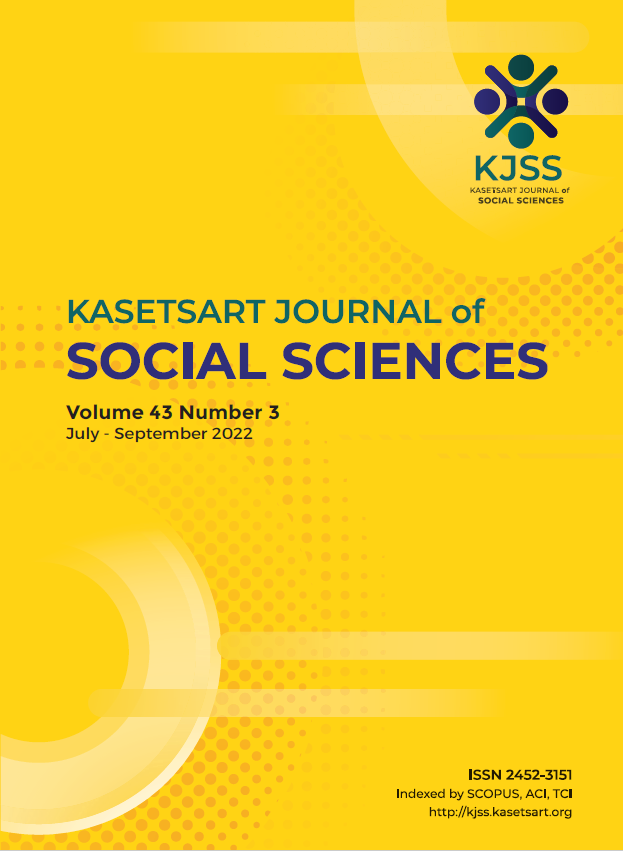Buddhist compassionate leadership and employee psychological outcomes: The mediating role of trust in leader on Thai financial services employees
Keywords:
BCL, Buddhist compassionate leadership, commitment, creativity, trust in leaderAbstract
Recent research has frequently demonstrated that leaders’ behaviors hold an important place in organizational management. However, it is questionable whether compassionate leaders contribute to employee psychological outcomes through trust in leader. This study explored the relationships between Buddhist compassionate leadership (BCL), trust in the leader, and employee psychological outcomes from Thai financial institutions (N = 324). The Path analysis results showed that cognitive trust exerted a positive mediating effect in the relationships of BCL with a commitment to a leader, commitment to an organization, and employee creativity. Affective trust positively mediated the relationship between BCL and a commitment to an organization, but negatively mediated between BCL and creativity. The findings suggest that BCL enhances trust in the leader and emphasizes trust as a significant social process that underlies the impact of BCL on Thai employee outcomes.
Downloads
Published
How to Cite
Issue
Section
License

This work is licensed under a Creative Commons Attribution-NonCommercial-NoDerivatives 4.0 International License.
This is an open access article under the CC BY-NC-ND license http://creativecommons.org/licenses/by-nc-nd/4.0/










